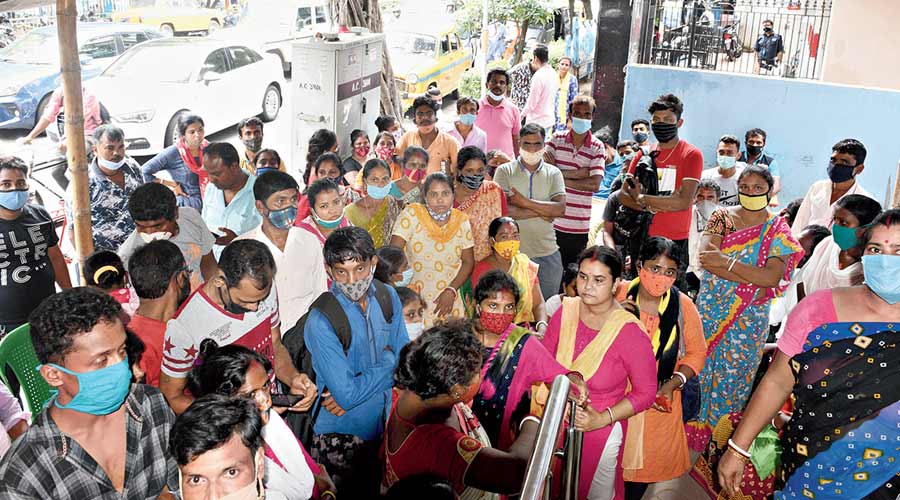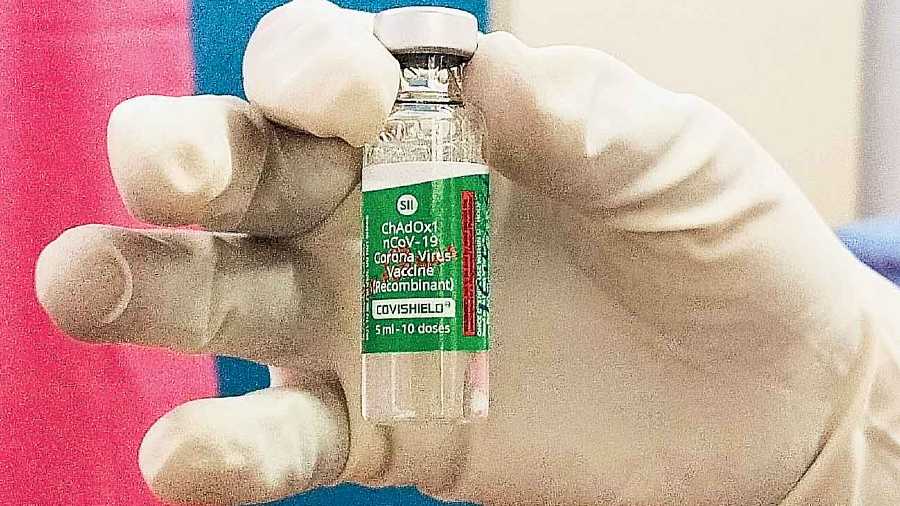India is set to begin a clinical trial to evaluate the impact of a booster third dose of Covishield or Covaxin and probe whether it is acceptable to mix the vaccines in the two-dose vaccination schedule.
Doctors at the Christian Medical College, Vellore, hope to start recruiting volunteers this month for the trial, which will examine the immune responses from a third dose in vaccinated people and a mixed dose schedule in unvaccinated people.
Covid-19 booster doses may be needed to address waning immunity against the infection or severe disease, reduced protection against coronavirus variants of concern, and inadequate protection from standard dosing regimens.
But the World Health Organisation has cautioned that “the introduction of boosters should be evidence-driven”, amid concerns that under current global vaccine supply constraints, boosters could exacerbate inequities.
It is feared that boosters could consume supply while priority populations in some countries or within countries have not yet received primary vaccines.
The CMC trial, approved this week by India’s regulatory authority for drugs and vaccines, is part of efforts to generate such evidence and to determine whether Covishield and Covaxin — the two main vaccines currently used in India’s vaccination campaign — can be mixed.
“Our primary aim is to examine safety and immune responses,” Winsley Rose, professor of paediatrics at the CMC and the trial’s principal investigator, said. “If we establish that a mix of Covishield and Covaxin is non-inferior or as good as the current two-dose schedule, that by itself would be significant.”
Rose and his colleagues hope to recruit 500 unvaccinated volunteers, some of whom will get the standard two doses of the same vaccine, while others will get the mixed dose regimen — either Covishield first, then Covaxin, or Covaxin first, then Covishield. Another group of 600 vaccinated volunteers who have received both doses of Covaxin or Covishield will receive a third dose — the same vaccine or the other vaccine.
While the full trial is expected to last over a year, the earliest results relating to immune responses from the booster doses could be expected after 12 weeks, Rose said.
The two vaccines use different immunisation strategies. Covishield uses a genetically engineered, harmless adenovirus while Covaxin uses the inactivated (killed) coronavirus to generate immune responses against Covid-19.
“In theory, mixing vaccines could enhance protection by widening the scope of the immune responses from two different vaccines,” Rose said. “For instance, mixing vaccines could enhance immune responses against the variants of concern — but this needs to be rigorously assessed.”
Scientists with the Indian Council of Medical Research had earlier this week reported that Covishield as the first dose and Covaxin as the second dose “elicits better” immune responses than two doses of the same vaccine.
But the ICMR study was based only on observations on 18 people in an eastern Uttar Pradesh town who had been mistakenly administered Covaxin as the second dose after Covishield. The scientists had said the observations needed to be validated through a clinical trial.













